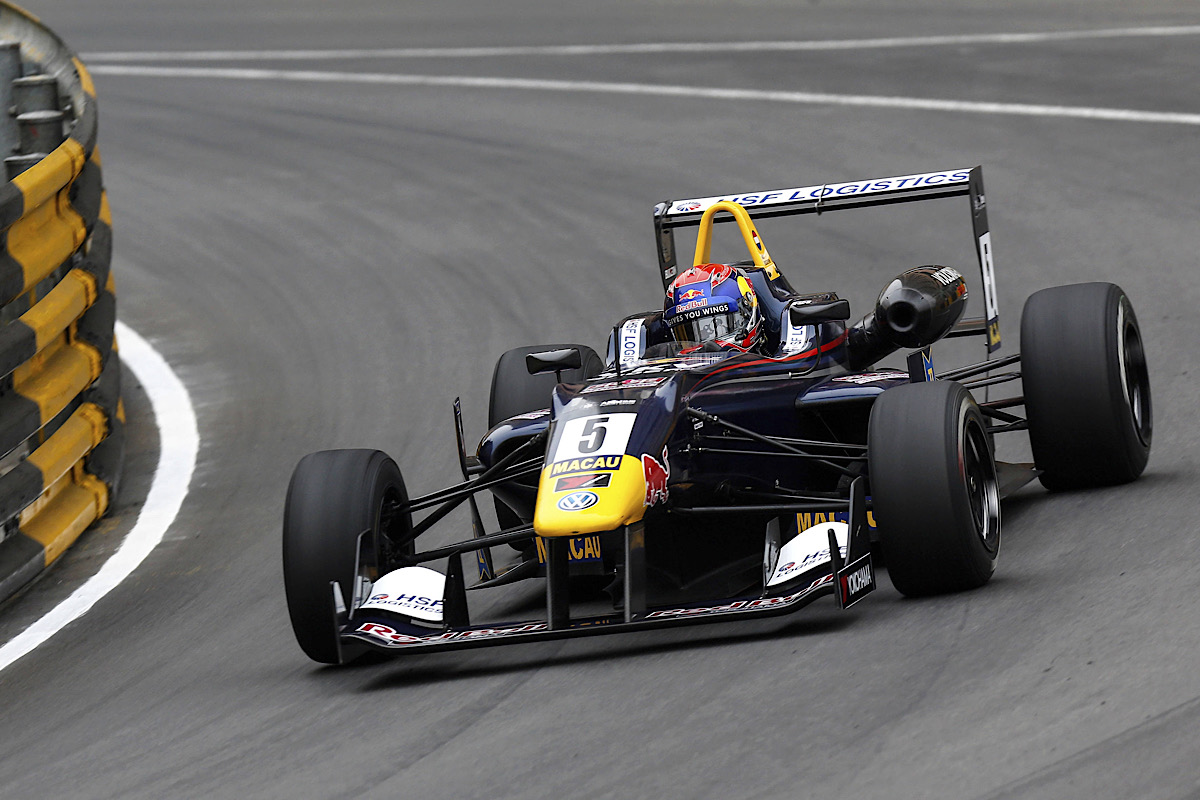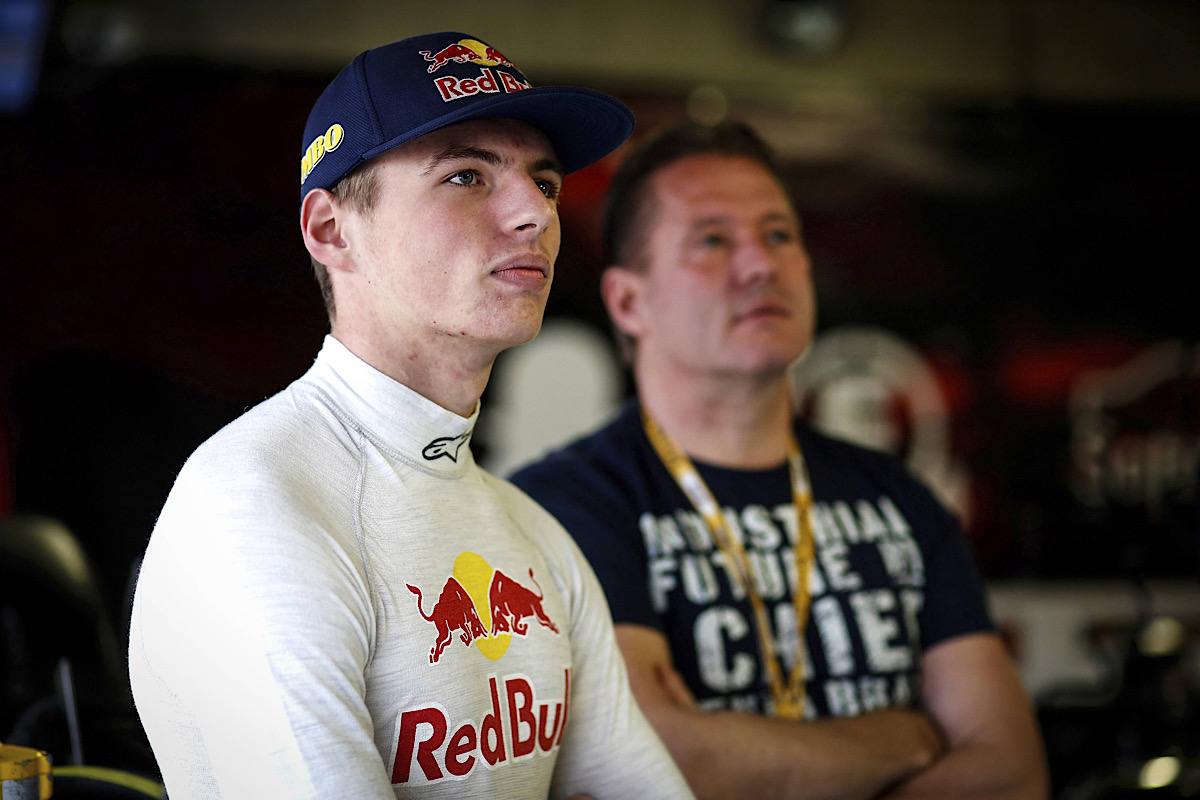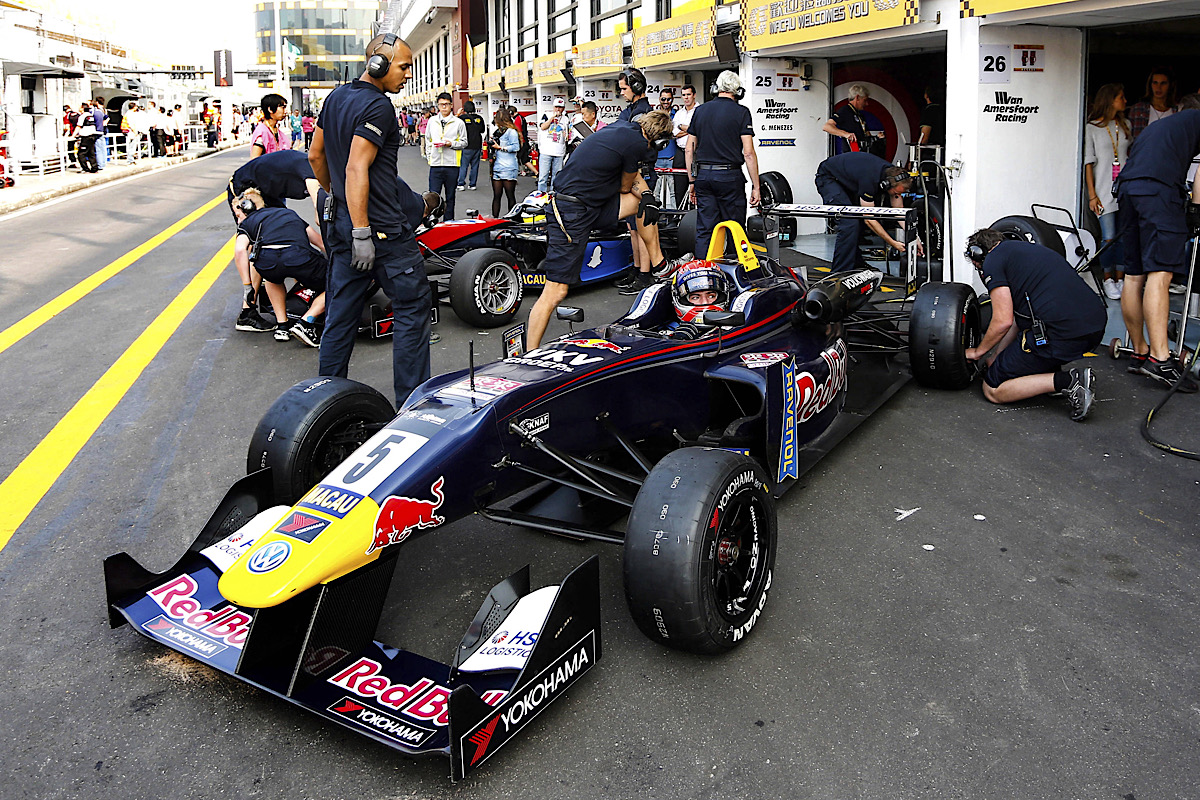
Photos: Red Bull Content Pool
Ten years ago, Max Verstappen came into the Macau GP on a high. He had the speed and machinery to win, but this time he and his father Jos’s “win-at-all-costs” philosophy would bite them back as VAR recalls
One month before the 2014 Macau Grand Prix, a 17-year-old Max Verstappen made his Formula 1 practice debut at the Japanese Grand Prix, becoming the youngest ever driver to take part in a competitive F1 session.
Famously, Red Bull had won a tug-of-war for his services by guaranteeing a 2015 F1 seat at their secondary team Toro Rosso – for a driver then only halfway through his maiden season in single-seaters.
Verstappen was racing in FIA European Formula 3 with Van Amersfoort Racing, the team that had run his father Jos to Formula Opel Lotus success in 1992. Formula Scout caught up with VAR’s founder, Frits van Amersfoort, and its CEO Rob Niessink to discuss what happened over that Macau weekend.
“Macau is so special; the circuit comes to you,” says van Amersfoort. “And we knew that because we had been at Macau some times before.”
“[Back in Europe, Max would] rely a lot on the experience of Jos in driving, and Jos had driven all the circuits basically where we go. But he had no experience in Macau, but we had.”
When Jos Verstappen was starring in F3 in 1993, he opted to skip Macau. He had won the German championship and Masters of F3 race, and had already signed to join Benetton in F1 the next year.
Ironically, given how their paths would later cross, that 1993 Macau GP was won by future Red Bull Junior Team supremo Helmut Marko’s RSM Marko team with Jorg Muller at the wheel.
 Fast forward back to 2014, and relations between the team and the Verstappen camp began to sour during qualifying, as Van Amersfoort recalls.
Fast forward back to 2014, and relations between the team and the Verstappen camp began to sour during qualifying, as Van Amersfoort recalls.
“Rik [Vernooij, Max’s engineer] had a huge fight with Jos because Jos didn’t believe in the set-up and wanted to bring Max in and change the wing settings. Rik said: ‘No. We’re not going to do that. We keep on driving.’.”
After setting the fifth-fastest time in the first qualifying session, Verstappen moved up to third after Q2, although a penalty for failing to stop at the weighbridge meant he lined up ffth for Saturday’s qualification race.
Niessink remembers trying to get his young driver to play it safe. In vain.
“We were talking about ‘okay, if you’re top three [in the qualification race] then in the main race with overtaking and the slipstream [you can move up]’. And Jos goes: ‘What do you mean, the top three is good enough? Don’t be ridiculous. We need to win.’”
A fantastic start propelled Verstappen up to second, behind Lucas Auer, with eventual winner Felix Rosenqvist on his tail.
But then disaster struck. On lap four Verstappen locked up going into the Solitude Esses, hitting the barriers, and being forced to retire after bending his suspension and knocking a tyre off the wheel rim.
“We were on our way to come home second in the Saturday race, where we know we would have won the Macau race on Sunday,” says Niessink. “Absolutely!”
Verstappen blamed low tyre pressures, but in reality, he had been pushing too hard, too early.

The qualification race’s finishing order set the grid for the main race, meaning Verstappen lined up in 24th place.
In a race that was halted after a multi-car pile up at San Francisco on the first lap which eliminated six cars – including his main European F3 rival Esteban Ocon – Verstappen put on a mighty charge through the field, setting the fastest lap in the process, that took him to seventh. But for his team the story was of what might have been.
“For the simple reason that only winning is good enough, Max crashed the car when P2 [in the qualification race].
“On Sunday that was a ridiculous race where there was a crash, and it was restarted, but he came from the back to P7 then had to do it again because of the red flag and we would have won it,” recalls Niessink.
“[The Verstappens think] it’s only the winning counts, even the Saturday race you need to win it. Everything needs to move over for the win.”
“And that’s typically how it basically was all year,” adds van Amersfoort. “In the end, we were right because he was bloody fast in Macau. The only mistake Max made in Macau is the same he made in the first year in F1 as well, trying to do it all together.
“He would have finished second in the qualifying race but he wanted to win it and then he crashed. So, in the end, the whole story is fantastic.”